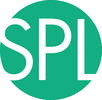Documentation/Nightly/Modules/SEG2NRRD
|
For the latest Slicer documentation, visit the read-the-docs. |
Introduction and Acknowledgements
|
Extension: Reporting | |||||||||
|
Module Description
This module can be used to convert image segmentations saved as DICOM Segmentation image object into NRRD format. Relevant metadata is saved in the .info file.
Use Cases
See (Fedorov et al. 2015) for details on the PET/CT quantitative analysis use case.
Tutorials
None at this time ... stay tuned!
Parameters:
()
* ':
** ':
*** ':
List of parameters generated transforming this XML file using this XSL file. To update the URL of the XML file, edit this page.
Similar Modules
References
[1] Fedorov A, Clunie D, Ulrich E, Bauer C, Wahle A, Brown B, Onken M, Riesmeier J, Pieper S, Kikinis R, Buatti J, Beichel RR. (2015) DICOM for quantitative imaging biomarker development: A standards based approach to sharing of clinical data and structured PET/CT analysis results in head and neck cancer research. PeerJ PrePrints 3:e1921 https://doi.org/10.7287/peerj.preprints.1541v1 [2] DICOM Segmentation IOD. http://dicom.nema.org/medical/dicom/current/output/chtml/part03/sect_A.51.html
Information for Developers



